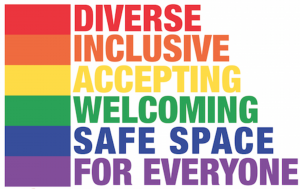When an employer fails to reasonably accommodate an employee’s religious beliefs or religious dress code, must the applicant or employee explicitly inform the employer of an inflexible conflict between the employee’s religious beliefs and the employer’s job requirements? Or, is the employer’s legal obligation to accommodate triggered by its constructive knowledge of an employee’s religious beliefs? This issued had divided the courts of appeals, and the 10th Circuit sided with the first view on Oct. 1, 2013 in EEOC v. Abercrombie & Fitch Stores Inc.
In here, an applicant wore a hijab to a job interview at Abercrombie & Fitch. She was denied employment, because wearing a hijab was inconsistent with A&F’s look policy, which aspires to be a preppy, Northeastern look. While the employer knew something about the wearing of the hijab, it would be liable only if the applicant had explicitly stated that the religious practice conflicted with the company’s rules.
The 10 Circuit said, “The reasonable-accommodation principle is implicated only when there is a conflict between an employee’s religious practice and the employer’s neutral policy; only then does a need to accommodate arise. . . . For there actually to be a conflict, logic dictates that an applicant or employee must consider the religious practice to be an inflexible one — that is, a practice that is required by his or her religious belief system.”
Because the applicant did not inform A&F of an inflexible conflict, Abercrombie & Fitch won.




